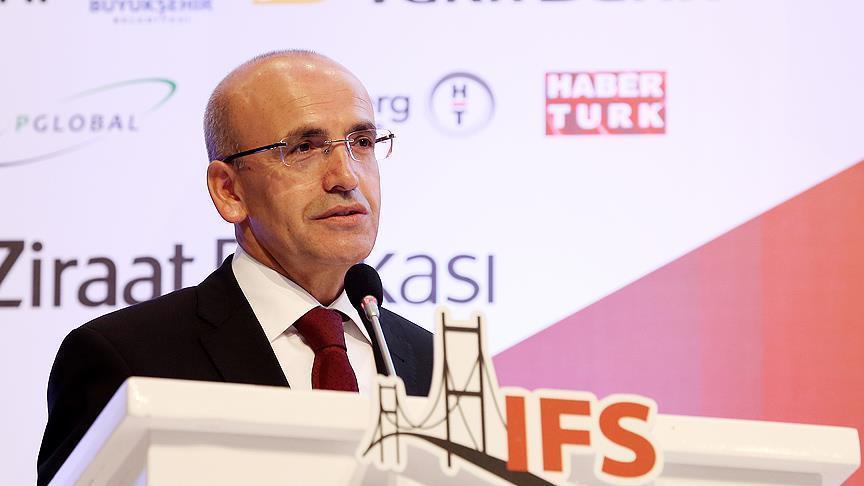Structural reform key to maintaining Turkey’s growth

Turkey will maintain its structural reform program amid tight monetary controls to strengthen growth, Deputy Prime Minister Mehmet Simsek said Wednesday.
The country has seen an average growth rate of by 5.6 percent over the last 14 years, according to the government, despite a number of challenges, not least last year’s defeated coup attempt.
Simsek told an audience at the Istanbul Financial Summit that the government aimed to maintain the same average growth over the next 30 years.
“We will continue our efforts to increase efficiency, improve the quality of institutions and take the country to high-income level, along with increasing predictability,” he said.
Macroeconomic financial stability would be key to increased wealth, he added. “Our most important priorities are decreasing the inflation rate to single digit numbers, maintaining the current account deficit at a sustainable level and preserving financial discipline.”
He particularly highlighted trade with partners in the Middle East and EU as crucial to Turkey’s financial success and said Istanbul would become ever more important as a global financial center.
The summit is focussed on financial technologies, such as digital finance platforms to send money by mobile phone, and Simsek said Turkey would concentrate on developing the sector to emerge as a key exporter of fintech products.
“We will pave the way for investors who run businesses in this sector and provide all the necessary support through legal regulation and incentives,” he said.
The minister claimed Turkey could take a 15-20 percent share in the world fintech market if the sector was to grow at the same rate as the country’s wider economy.
“We will directly provide sources to funds that support promising technology firms and start-ups in Turkey,” he said, including a crowdfunding platform.
He also suggested establishing a specialized investment banking system from Turkey’s sovereign wealth fund.
[adrotate group=”9″]



